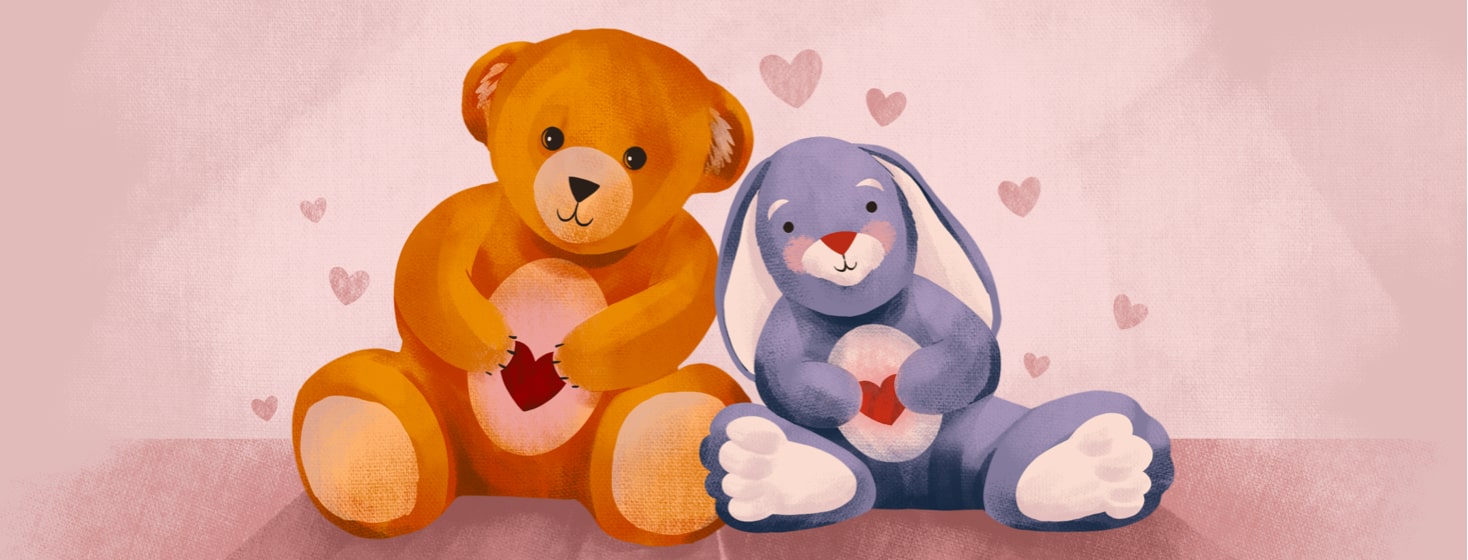Benefits of Using Stuffed Animals
When I was growing up, I remember my mom and dad would buy me stuffed animals. I would love on them, care for them, and just cuddle with them. They were such a big part of my world when I was a child. I have vivid memories of my entire bed being covered with my furry friends.
Visits to the toy aisle
Fast forward 30+ years later and I am walking into my mom's room at her care facility. Gosh, I can still remember that day so vividly in my mind.
I walked into mom's room and she was smiling and arranging all of her stuffed animals on her bed. She loved each and every single one of them. Mom even had named each of her stuffed friends.
When she was still able to get out, I would take her to the dollar store. At this point, she was trying to wear the same clothes as the day before, and could not recall what she had for breakfast that morning. However, as soon as we walked through the doors of the dollar store and she got situated with her cart, she headed right for the toy aisle. One hundred percent of the time, a new stuffed toy would end up in the cart.
Benefits of stuffed animals with Alzheimer's disease
- Helps to ground and calm. Stuffed animals, similar to pets, help to provide an opportunity to touch, pet, hold and hug. The sensory experiences that my mom received through stoking her animals with her hand and the touch input she was able to give herself through hugging her animals, was priceless.
- Allows opportunity to nurture: My mom was an elementary school teacher. I can't begin to imagine at a certain point in her disease what she understood and what she didn't. Personally, it was heartbreaking and terrifying to see my mom who nurtured so many, resistant to taking a shower. When she was with her stuffed animals, I got to see her able to interact and take care of others again. When she was nurturing, I saw mom's smile return and she was happy.
- Provide a door into the person's world: So often this disease disrupts relationships and the ability to interact with people. I often used my mom's stuffed animals as a way to engage with her. I found that when I talked about something that was vital to her world, I was more likely to get some sort of meaningful reaction with her.
Who can benefit?
Stuffed animals are not a one size fits all solution for everyone with Alzheimer's dementia. My recommendation would be for use with those individuals in mid- to late stages of the disease. I have many years of experience as a health care professional. However, it wasn't until I saw how much joy they gave my mom, that I began to really think about stuffed animals as being therapeutically beneficial and a possible door or gateway into her new world.
Mom's memory lives on
My mom has passed and in her memory, I keep her favorite stuffed animal, Ocho, on my bed. Yes, I am in my forties and have a pink stuffed octopus on my bed. The same stuffed animal that brought her joy now brings me tremendous joy and brings a gigantic smile to my face.
Stuffed animals can play a pivotal role in assisting a loved one with Alzheimer's in comforting them. Hear from one community member around her mom's experience with stuffed animals in the forums, here.

Join the conversation